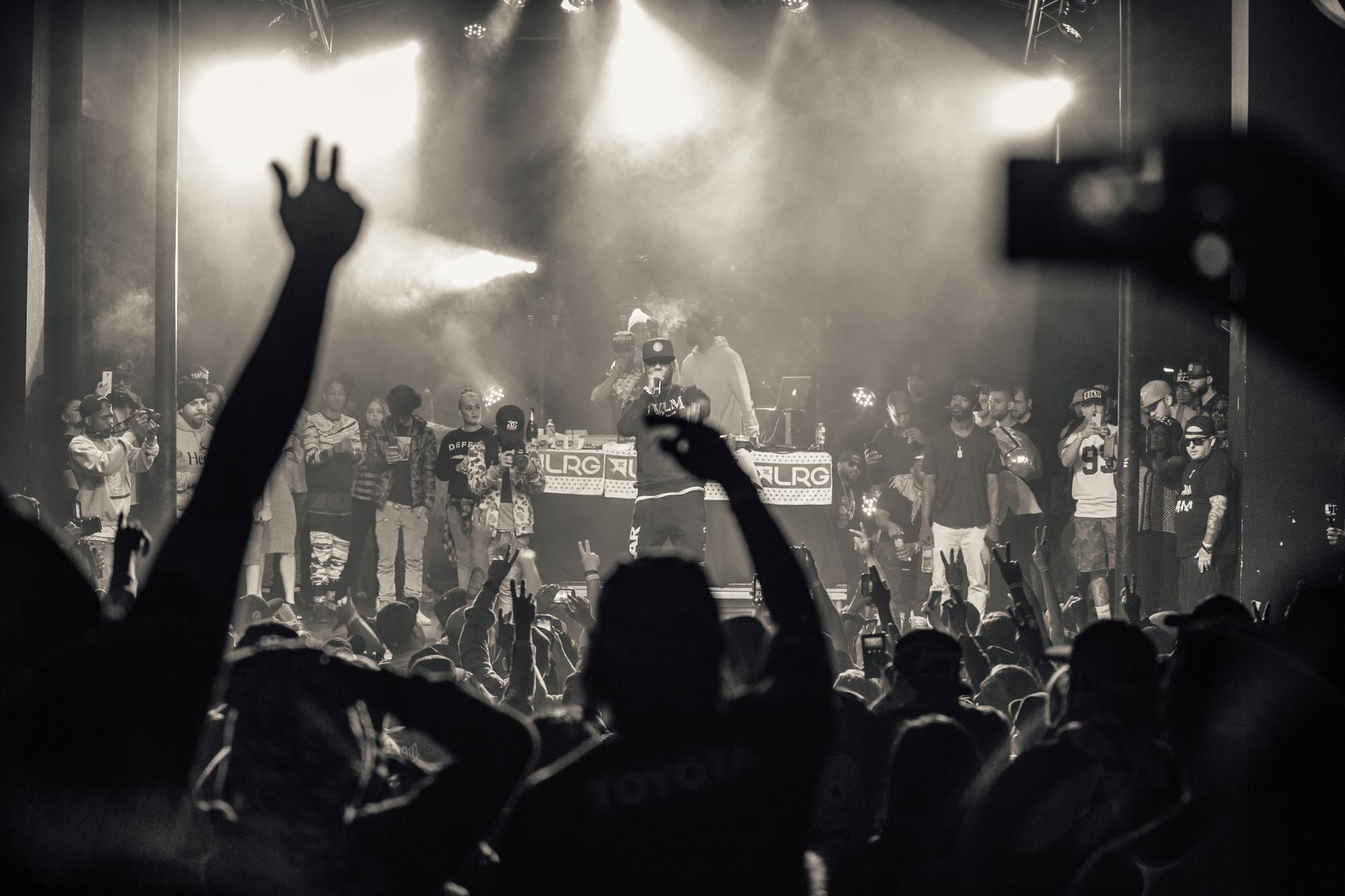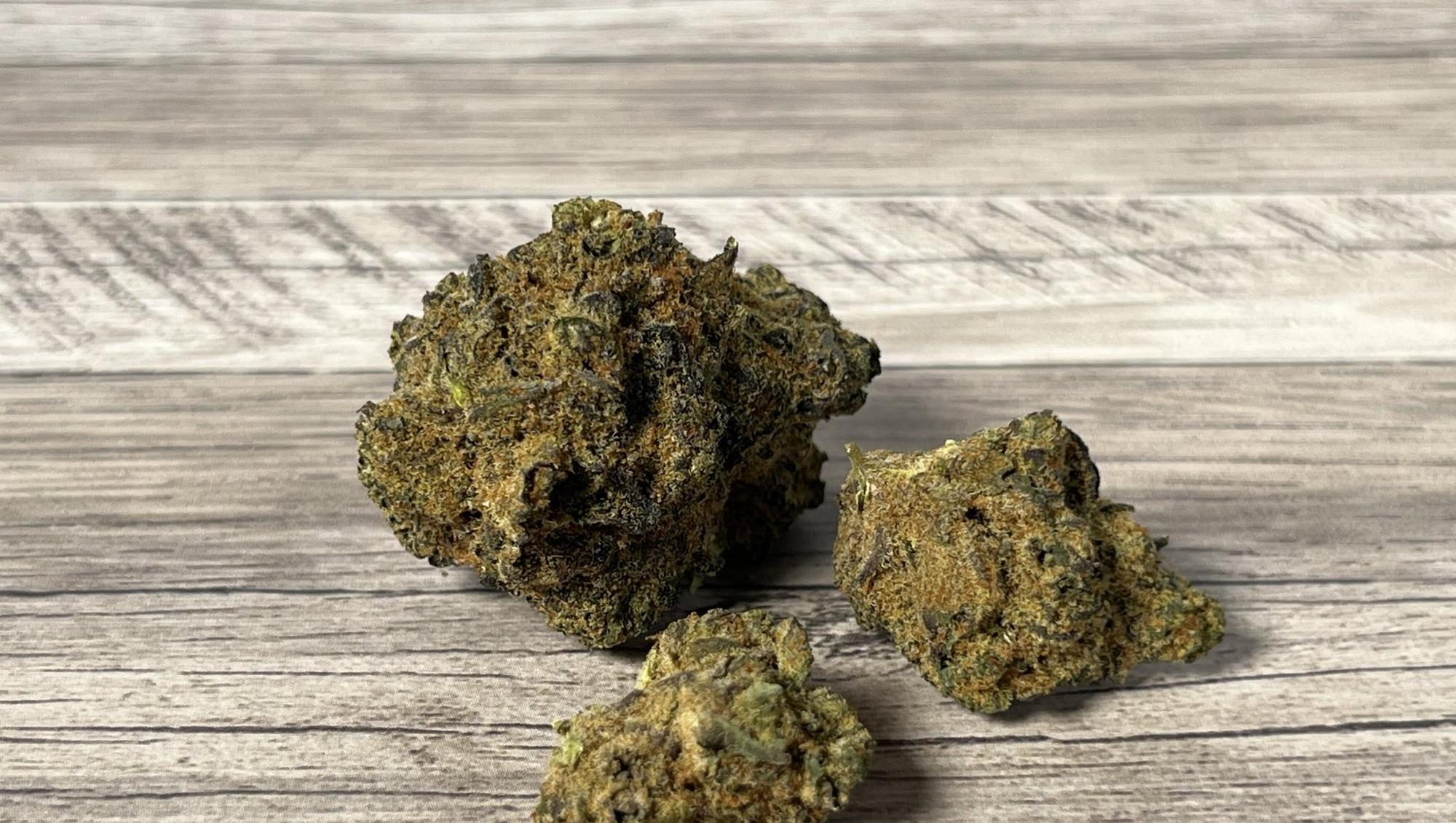Make no mistake about it, rapping and cannabis had become symbolic in modern-day culture.
Stoner rap (as some call it) has shaped today’s cannabis culture by way of leading role models and artists.
Drew Drucker, a Grammy-nominated producer, has collaborated with some of the biggest names in the ‘stoner rap’ scene, including Wiz Khalifa and Snoop Dogg (pictured left).
In an interview, Drucker shared his thoughts on the influence, origins, and future of this sub-genre, and also gives his picks for the biggest cannabis role models and advocates in hip-hop.
How would you define stoner rap? Is it only rapping about weed or is there more to it?
There’s more to it. I would say the first artists to start the trend would be Snoop Dogg and Cypress Hill. They were among the first rap performers to publicize their lifestyle of cannabis use.
Their songs were about cannabis. Their clothing was often 420-inspired. Their performances were often marijuana-themed. In many of their shows, they’d smoke cannabis on stage. It was sort of an all-encompassing lifestyle that showed through all they said and did.
Would you consider Snoop and Wiz to be the roots of the stoner-rap genre?
Rick James was really one of the first to start the trend. He had backup singers named The Mary Jane Girls. And we can’t forget how influential Bob Marley was.
But I don’t believe stoner rap to be a genre of its own. All stoner rappers have a genre of their own and a style of hip hop that’s unique to them.
For example, Juicy J and Three-6-Mafia regularly rapped about cannabis, but their music is usually labeled as trap.
When it comes to Snoop Dogg, many consider his genre to be G-Funk. When it comes to rapping and cannabis, you can usually trace back elements of artists to various genres and styles.
Stoner rap is often defined by an artist that makes a living on creating the image of positive cannabis use, and, creating good music, too.
So, it’s more about the lifestyle than the music?
Yes, although, Action Bronson is usually considered to be a stoner rapper, and he’s a good lyricist too. He doesn’t just rap about partying and using cannabis, unlike Afroman.
And I’d like to ask, most agree that Afroman’s “Because I Got High” didn’t set a positive example of marijuana use, correct?
Yeah, that’s right.
Do you think stoner rap has been influential in the cannabis-legalization movement?
I believe it had, quite a bit. If an artist were to get in trouble for, let’s say domestic violence, the public would be quick to point out the artist’s cannabis use. Situations like this put cannabis in a negative light.
But in many other ways, cannabis can be put in a positive light simply by living a do-good lifestyle and by becoming a positive community influence. A great example of an artist doing this is Wiz Khalifa. He’s an amazing father.
He’s also a dedicated worker that produces hit records while using cannabis. His messages are very positive and if you ever see him concert will never see him encouraging youth to act crazy or to smoke.
He encourages others to live their lives and to be their true selves. These types of stoner rappers are helping to remove barriers.
What other artists would you say sets a positive example?
Obviously, Snoop Dogg is one of them. Just take a look at the longevity of his rap career. He’s not only a rapper but a family man that had a TV show featuring Martha Stewart.
He grew up in a low-income, high-crime neighborhood filled with gang violence to becoming a father figure and positive American role model.
B-Real, a member of Cypress Hill, is another prominent role model in the cannabis community. But he’s more of a cannabis advocate now than anything else. He’s constantly lobbying for cannabis legalization and was one of the first artists in the rap game to publicly discuss cannabis, which he rapped about in Dr. Greenthumb and a few other songs.
‘The Chronic’ and ‘Black Sunday” were two landmark albums for making cannabis a discussable topic in rap, what are your thoughts?
Yes, you’re 100% right.
These albums and artists brought cannabis to the forefront of the rap game which paved the way for cannabis to become a large part of music culture.
Cypress Hill’s B-Real is a great and humble guy that also inspired stoner rap to become what it has today. If you pass him a joint, don’t expect him to not take it (if you know what I mean).
What do you see on the horizon for stoner rap?
It’s difficult to say. I think the future of stoner rap is artists such as Snoop, B-Real, Berner, and Wiz building brands around cannabis, that’s the future I see.
The music can sound like anything. Before, rap was more about how you sound. But now it’s more about how you live.
I believe that if you were to take ten stoner-rap artists from the future and lined them up side by side, they wouldn’t look like they all belong to the same genre of music.
However, they would all share one commonality and that’s their message and lifestyle of using and advocating cannabis.
I believe this is where it’s heading.
During my upbringing, if you told others you listened to hip hop, many labeled you as a gangster or backpacker. There were only a couple of looks.
And if you were a rocker, you were either gothic or a leather-wearing punk rocker. Nowadays, these looks have begun to morph together as lifestyles begin to intersect.
This is especially true when you look at rappers today. Rappers such as XXXTentacion, Lil Yachty, and Playboy Carti don’t have that rapper appearance but more of the punk-rock skateboarder appearance.
Rapping and cannabis have become a staple of today’s culture and has influenced music and fashion to great lengths.


